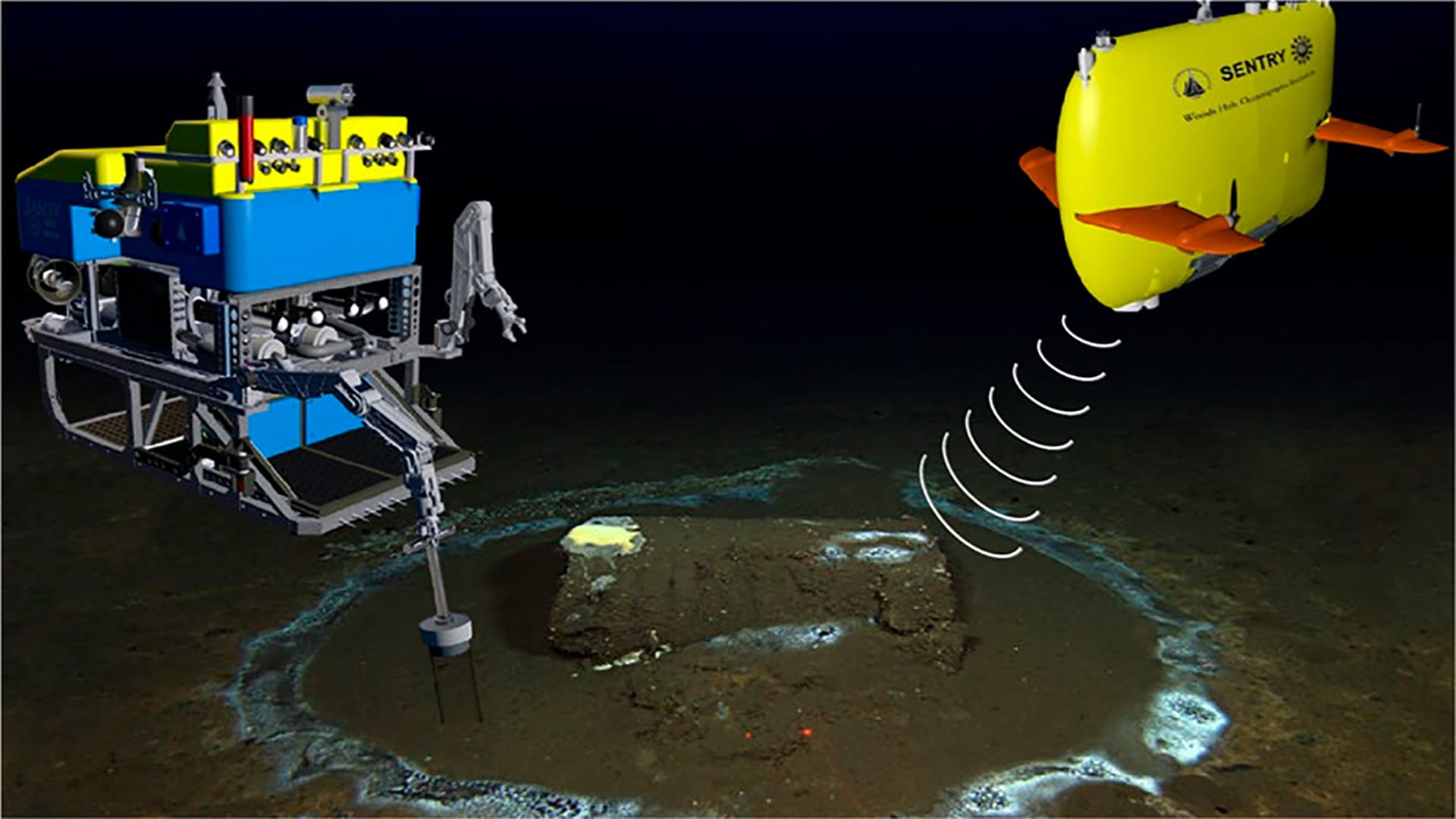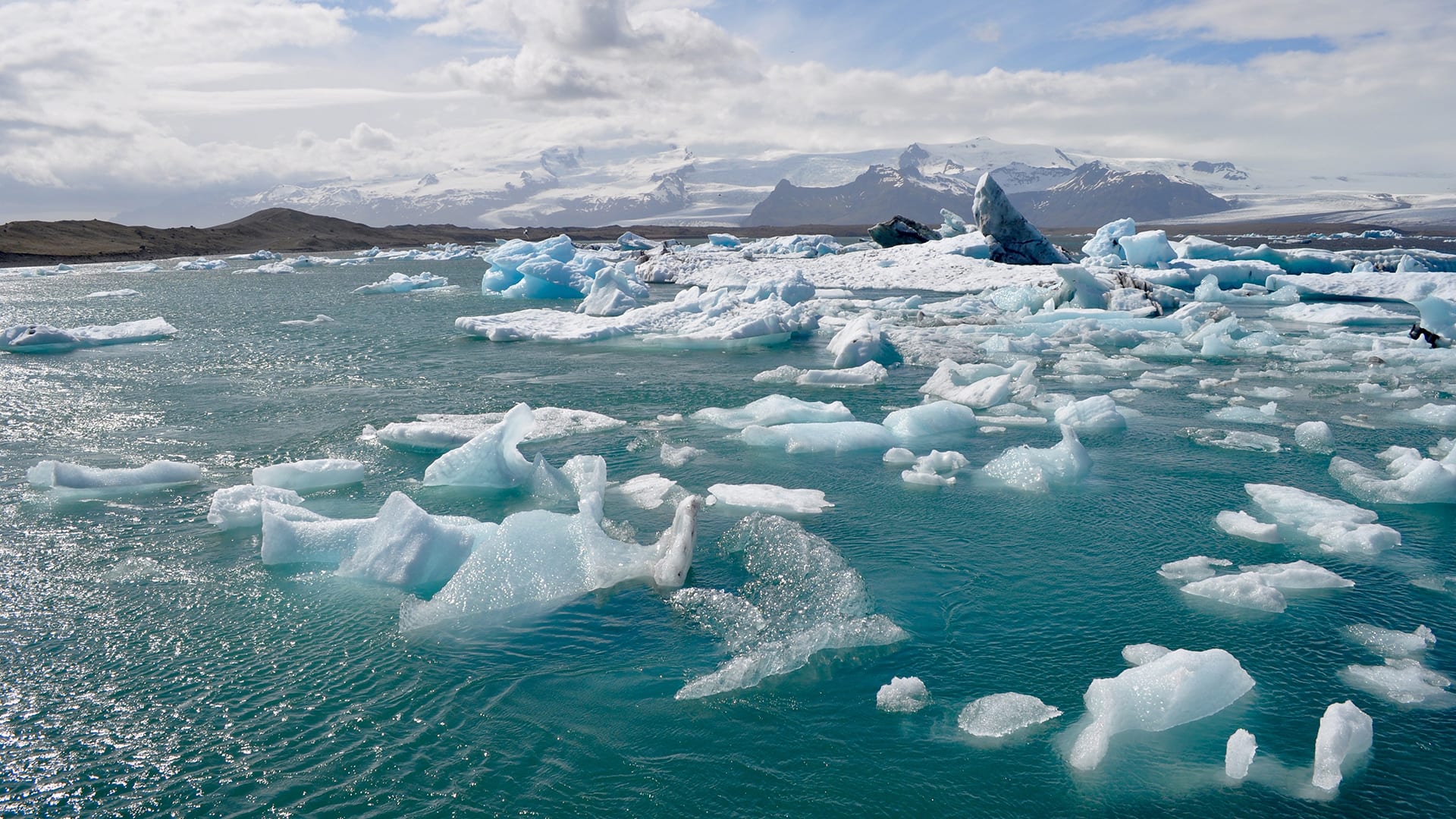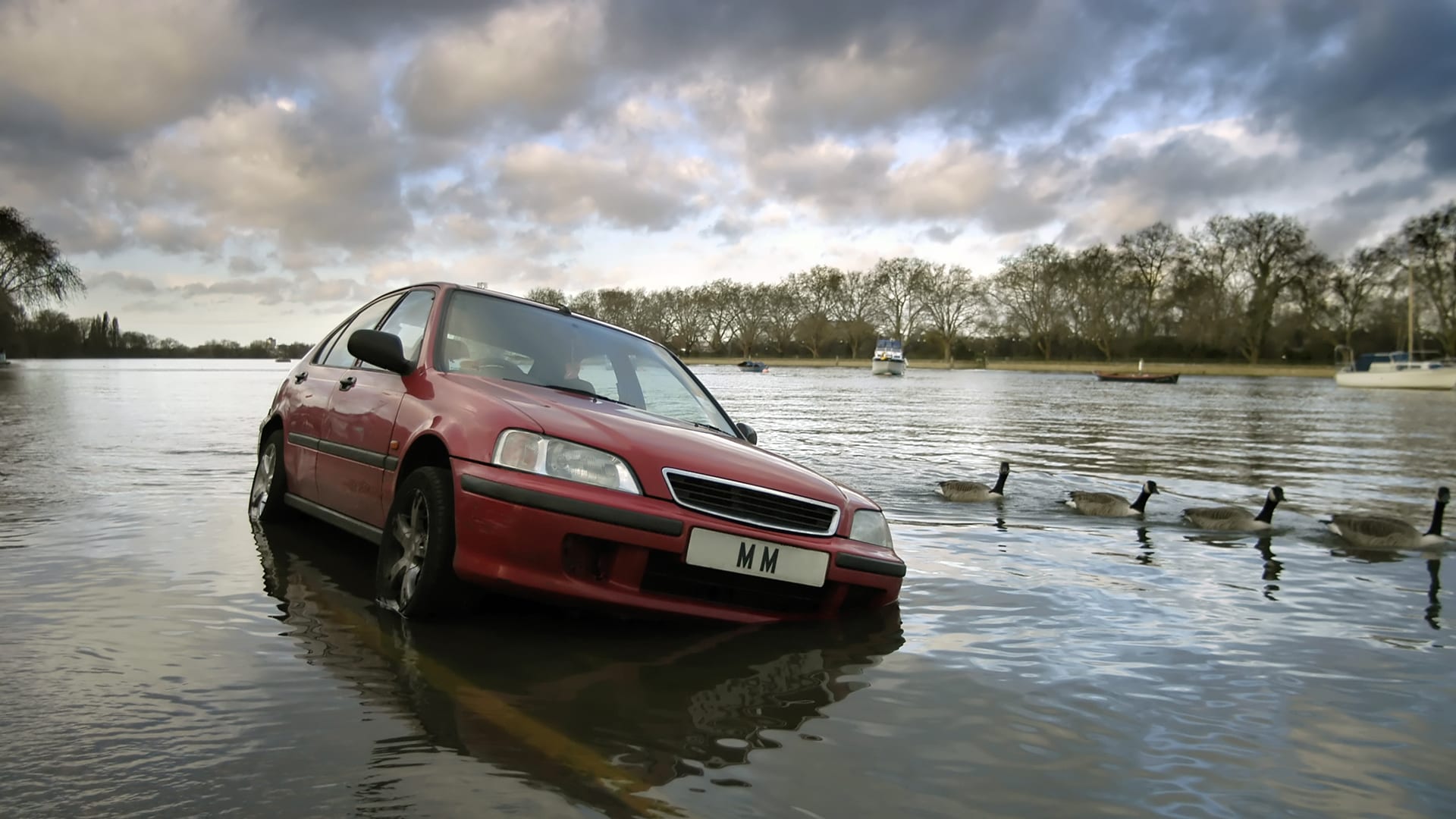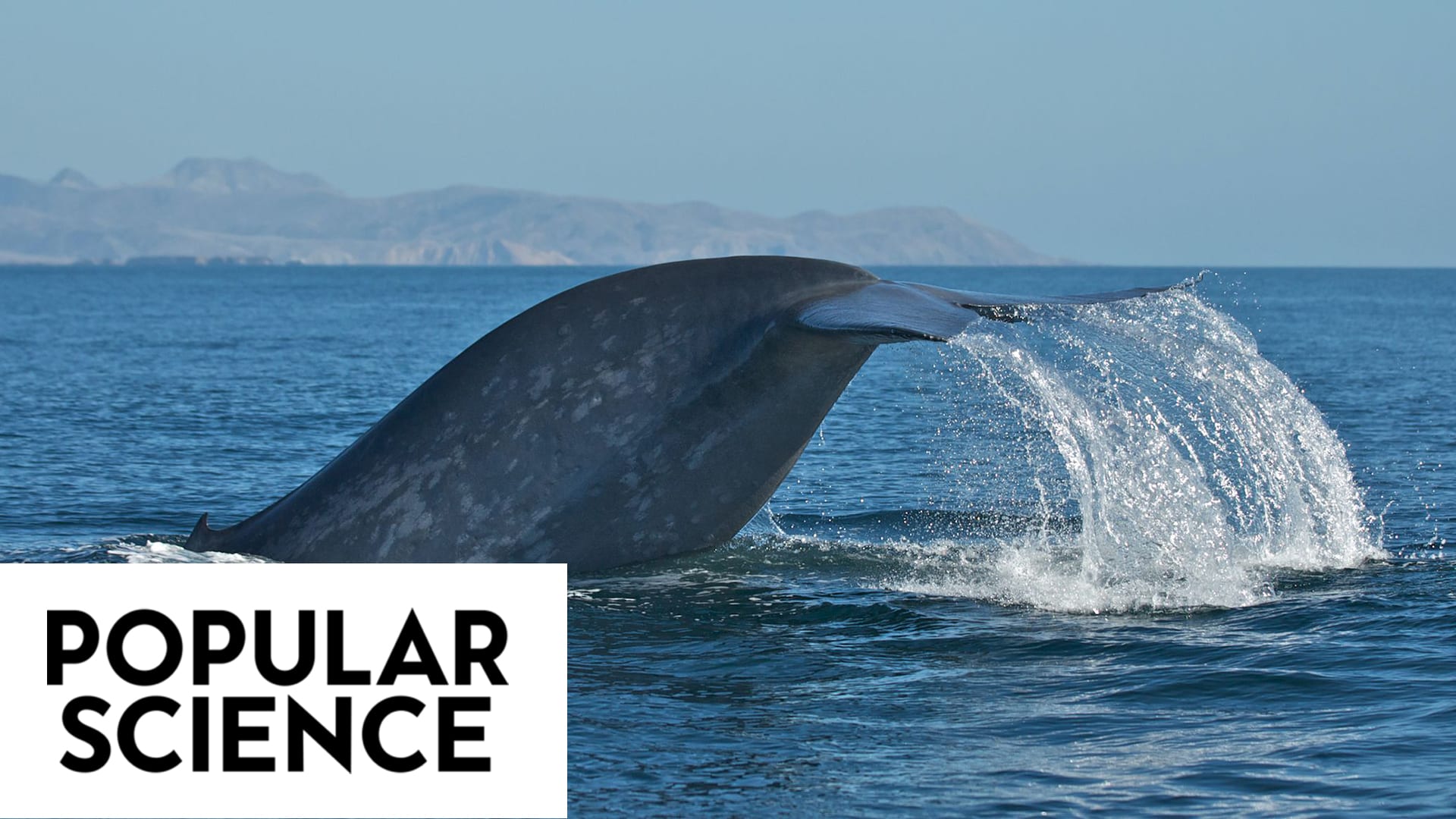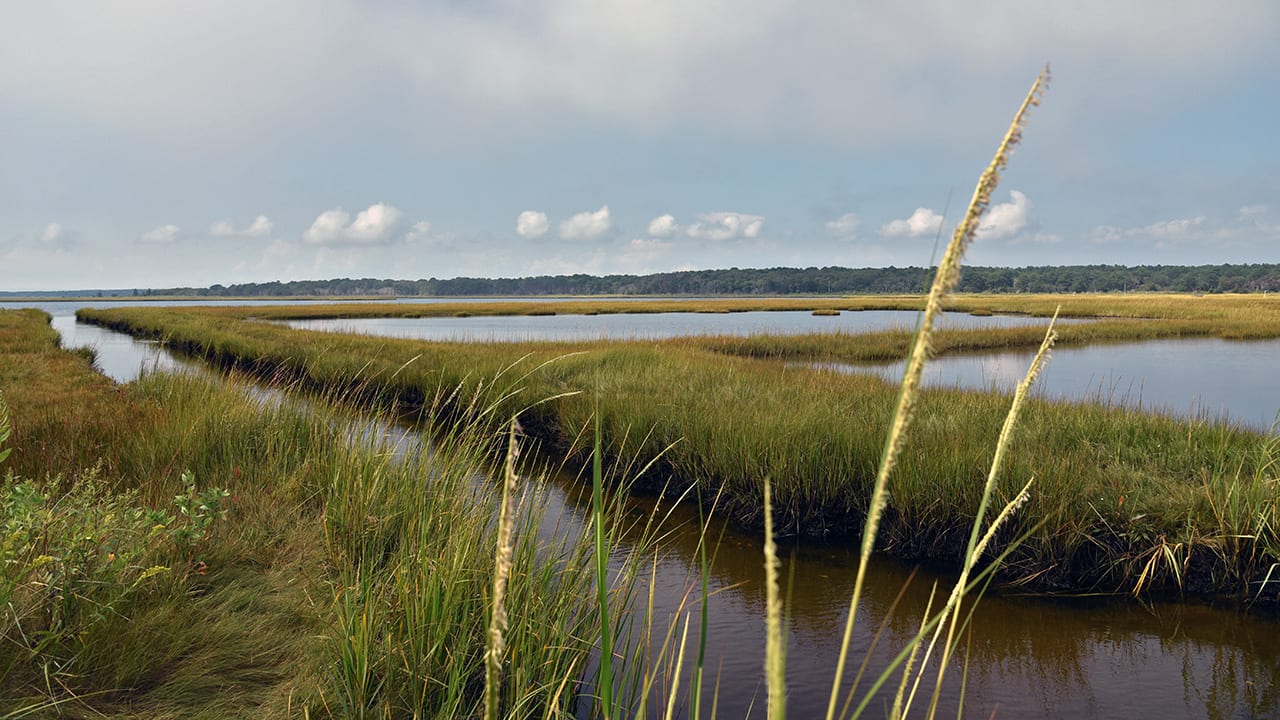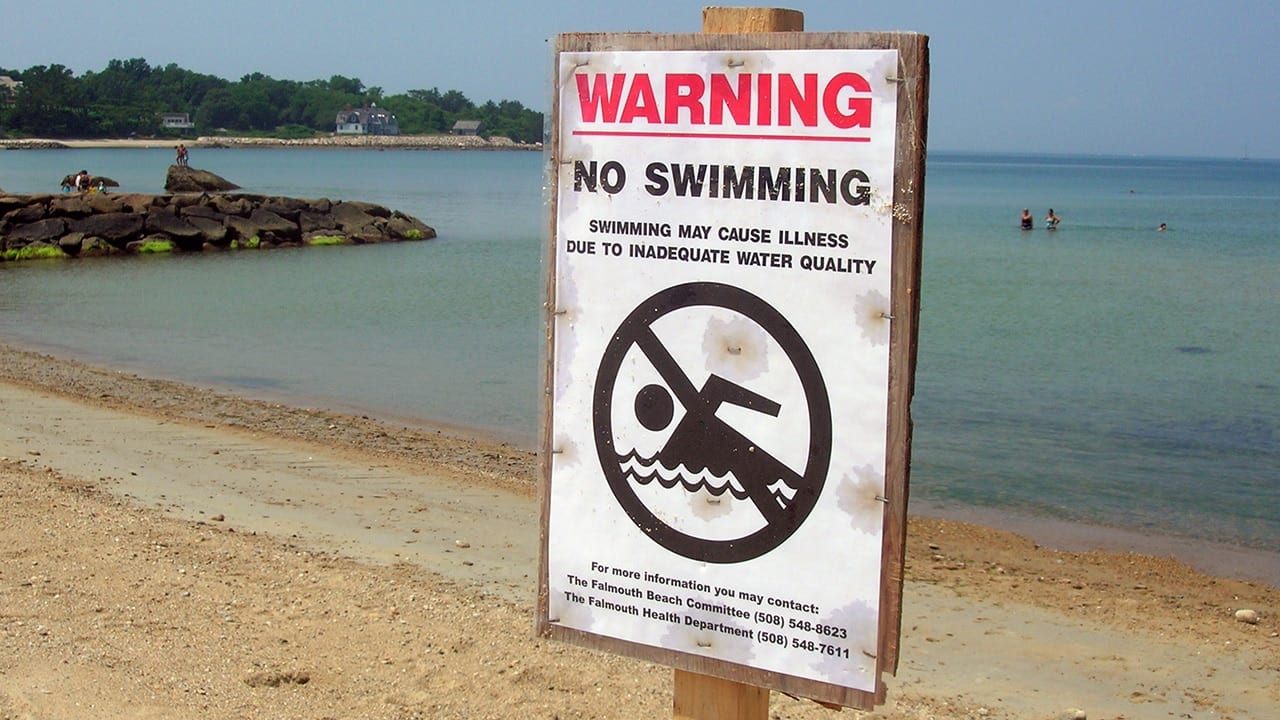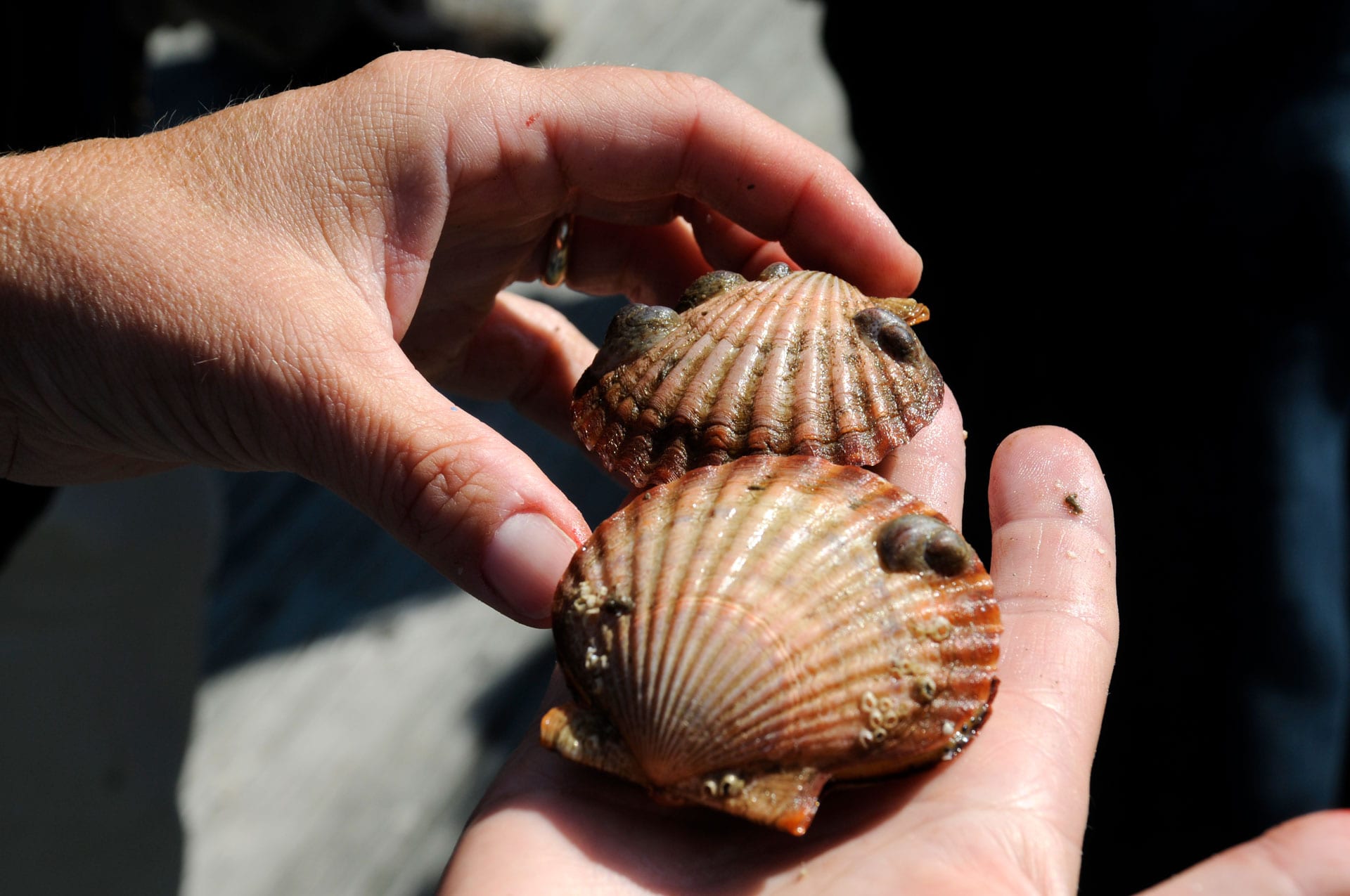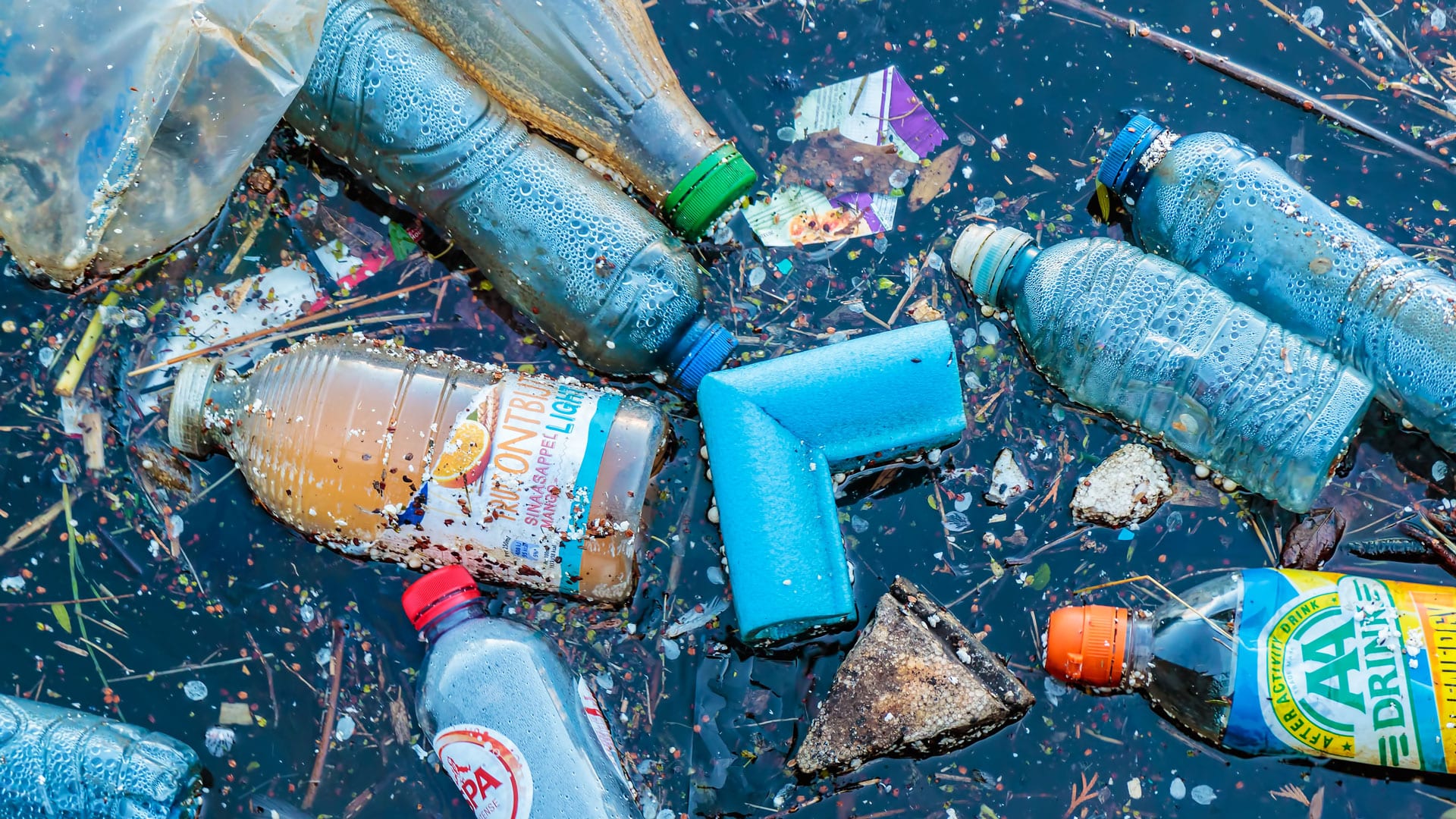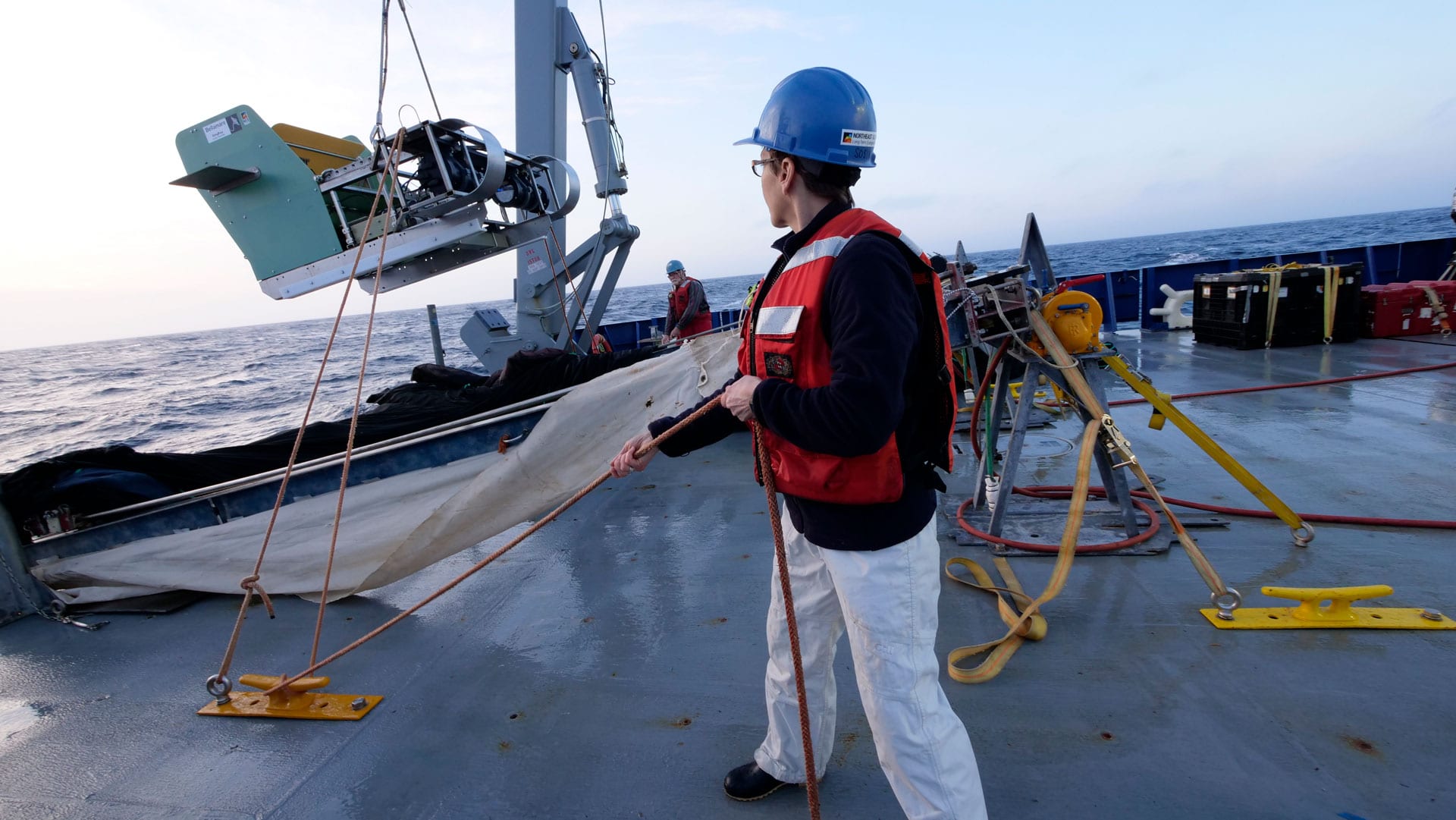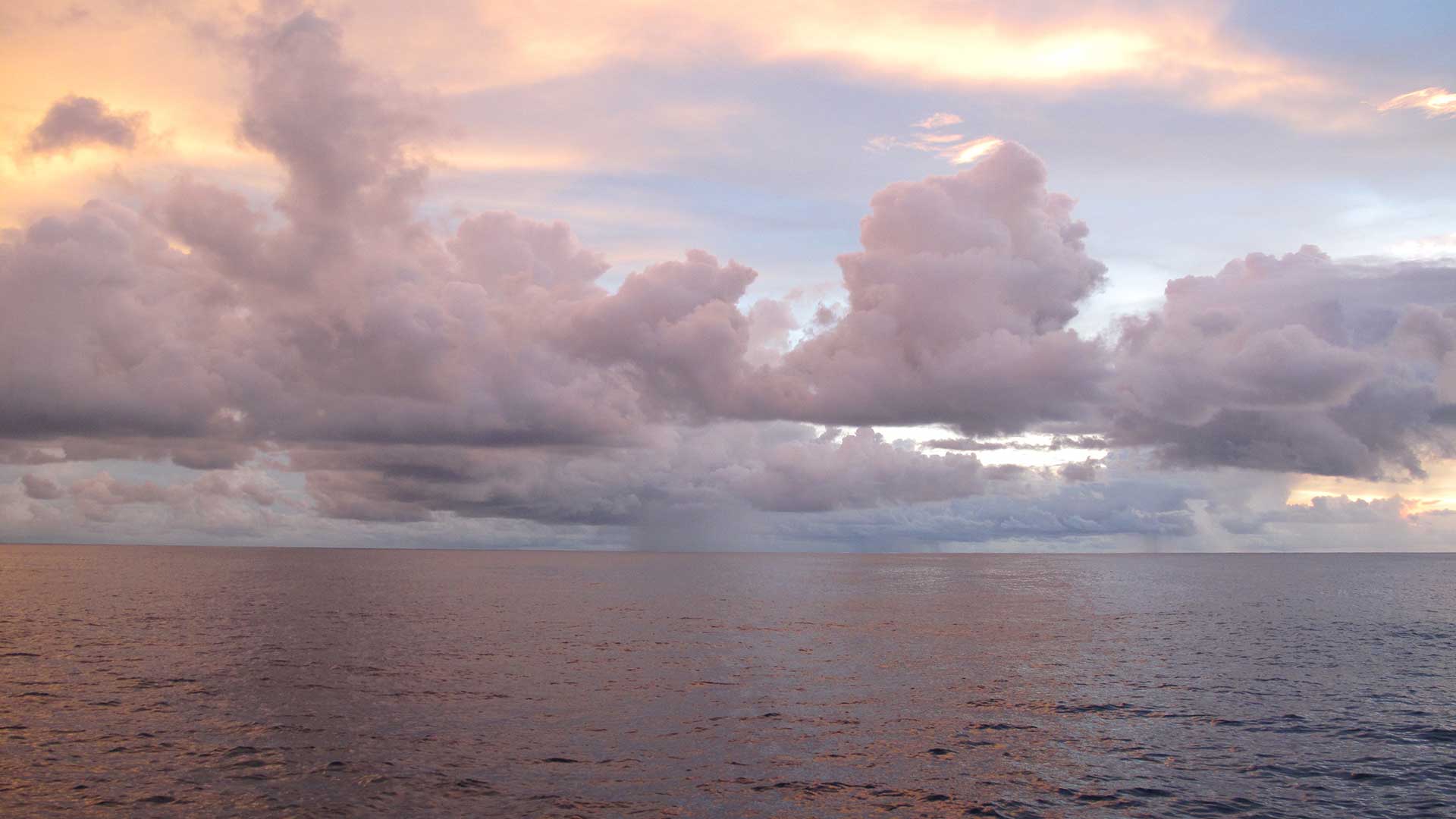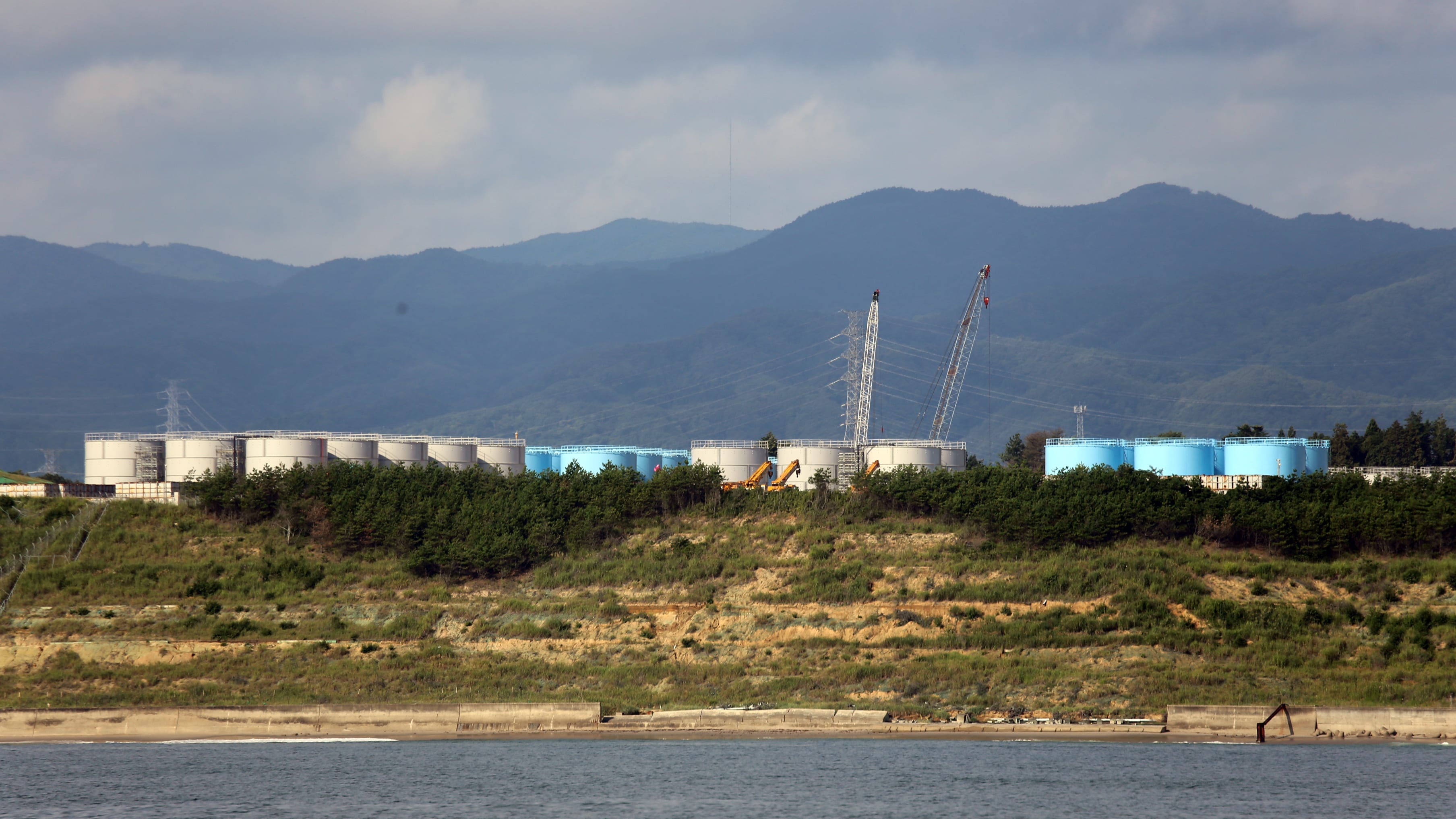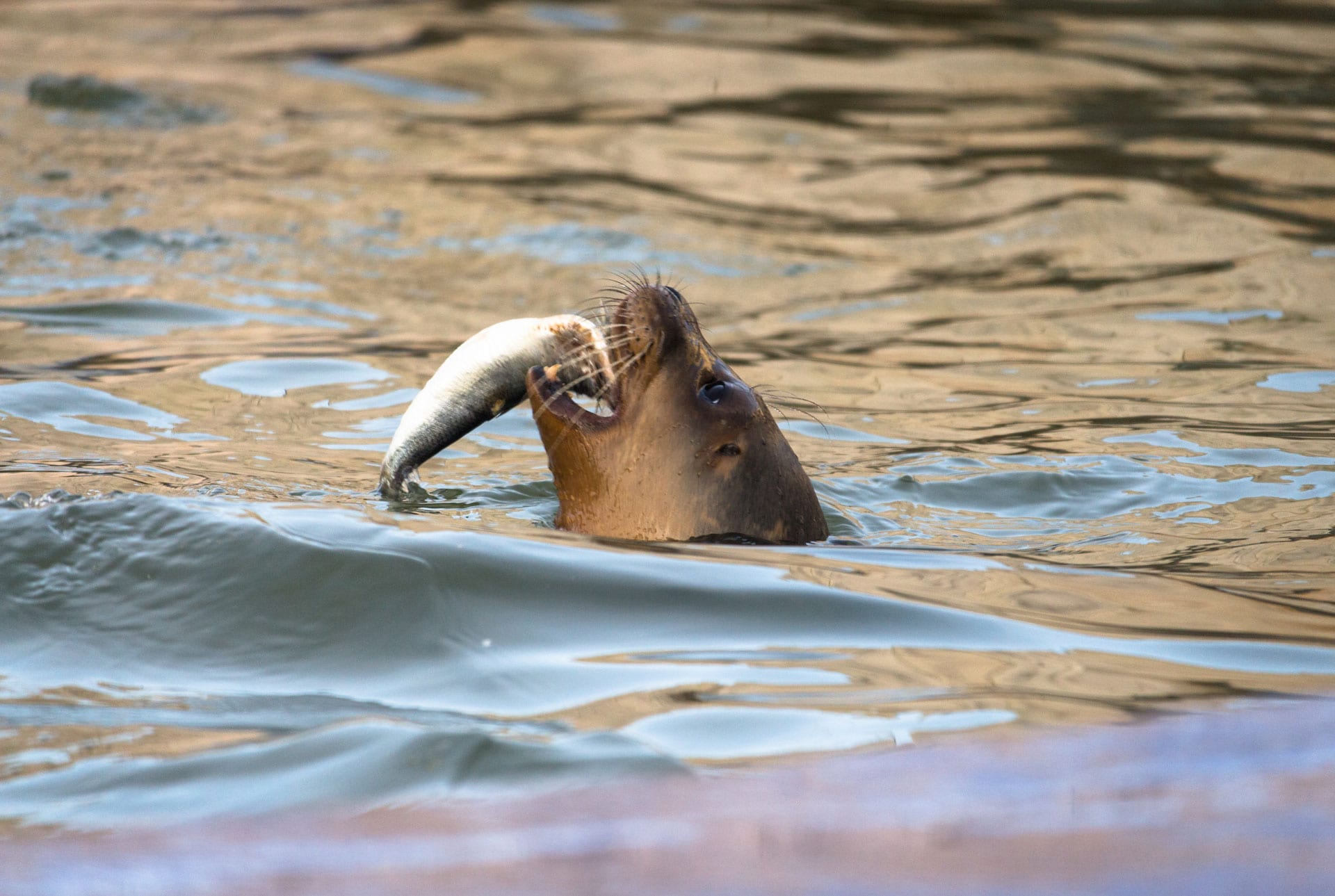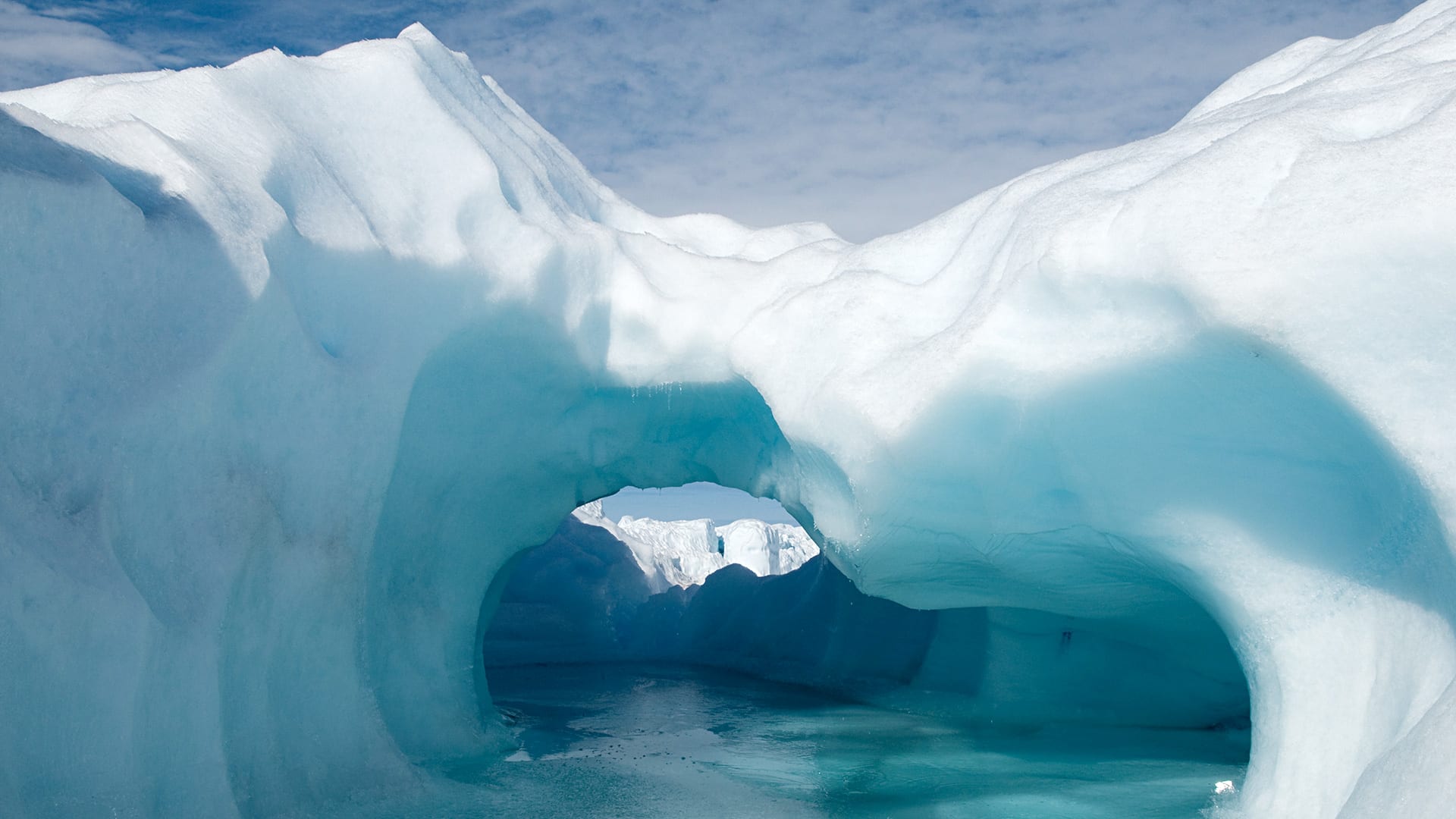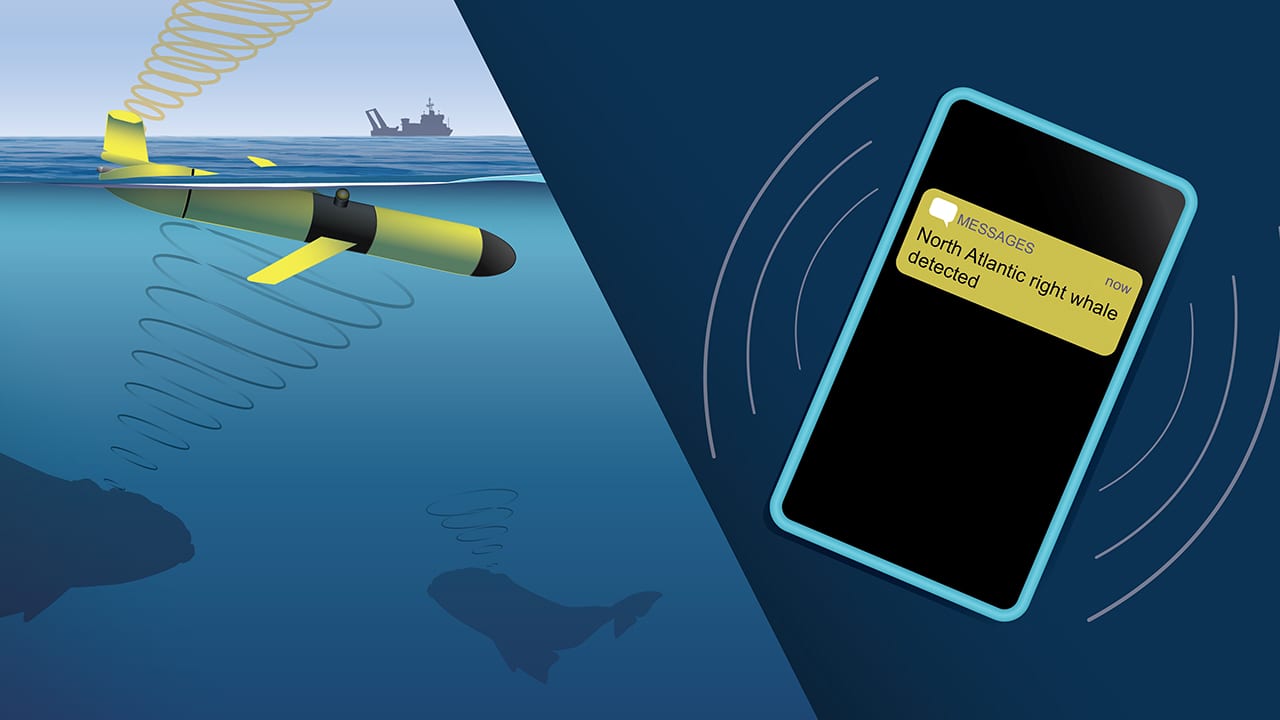Research Highlight
WHOI-assisted study finds ocean dumping of DDT waste was “sloppy”
An investigative report this week in the LA Times features the work of WHOI’s marine geochemistry lab in identifying the discarded barrels and analyzing samples from the discovery.
Read MoreTwo New Studies Substantially Advance Understanding of Currents that Help Regulate Climate
Two studies shed new light on a critical driver of the Atlantic Meridional Overturning Circulation (AMOC) and potential impacts of rising temperatures
Read MoreLearning the recipe for high-tide floods
A new WHOI-led program receives $1.5 million from NASA to investigate how local and regional environmental conditions affect extreme sea-level rise
Read MoreWHOI Collaborates on Ocean Detection System to Help Reverse Whale ‘Roadkill’
WHOI and collaborators launched Whale Safe, a detection system that may help prevent large ship collisions with the ocean’s behemoths along the California coast.
Read MoreListening to fish with passive acoustics
Scientists at the Woods Hole Oceanographic Institution and NOAA Fisheries combine forces to adapt technologies used to detect marine mammals for fisheries management.
Read MorePutting a value on green infrastructure to protect coastal communities
During an era of increasing sea level rise, WHOI marine policy experts Hauke Kite-Powell, Di Jin, and Porter Hoagland quantify the ecological value of shore-stabilizing ecosystems like wetlands and barrier islands
Read MoreExamining Connections Between the Ocean and Human Health
An ocean sickness is a human sickness according to experts at WHOI’s Center for Human Health and the Ocean. Marine toxicologist John Stegeman and his team are researching better ways to inform the public on the origins and dangers of marine toxins
Read MoreDeciphering the Impacts of a Changing Ocean on Scallop Fisheries
WHOI biologist Rubao Ji and colleagues, along with scientists from NOAA’s National Marine Fisheries Service and UMass Dartmouth, study the spatial distribution patterns of the scallop catch to help determine the effects of a changing climate on the industry
Read MoreHow Long Does Plastic Persist in the Ocean?
It can be hard to predict the average lifespan of plastics in the ocean when so many different types exist. WHOI chemists Chris Reddy and Collin Ward are working to simplify these predictions
Read MoreSpecialized camera system gives unprecedented view of ocean life
With still so much to learn about the planktonic creatures that support the marine food web, scientists with the Northeast U.S. Shelf Long-Term Ecological Research (NES-LTER) project have developed the In-situ Ichthyoplankton Imaging System (ISIIS) to take better images of these microscopic organisms in their natural environment
Read MoreFlorida Current is Weaker Now Than at Any Point in the Past Century
A key component of the Gulf Stream has markedly slowed over the past century—that’s the conclusion of a new research paper in Nature Communications published on August 7. The study…
Read MoreNew paper addresses the mix of contaminants in Fukushima wastewater
A new study in the journal Science addresses recent suggestions that treated wastewater from the Fukushima Dai-ichi Nuclear Power Plant should be dumped in the ocean.
Read MoreScientists and fishermen team up to film seals in fishing nets
Seals find ease in taking a meal already ensnared in wall-like gillnets cast by fishermen, but at what cost? WHOI biologist Andrea Bogomolni works with the fishing community to record and observe this behavior with the hopes of mitigating marine mammal bycatch
Read MoreWill melting glaciers cool the climate?
As glaciers melt at unprecedented rates, WHOI’s Simon Pendleton is looking back to historical records to predict whether this new cool runoff will slow ocean circulation and cool the northern hemisphere––findings which could mean adjustments to some climate predictions.
Read MoreTeaming up for right whales
Researchers from WHOI and NOAA combine underwater gliders with passive acoustic detection technology to help protect endangered species from lethal ship strikes and noise from offshore wind construction
Read More
